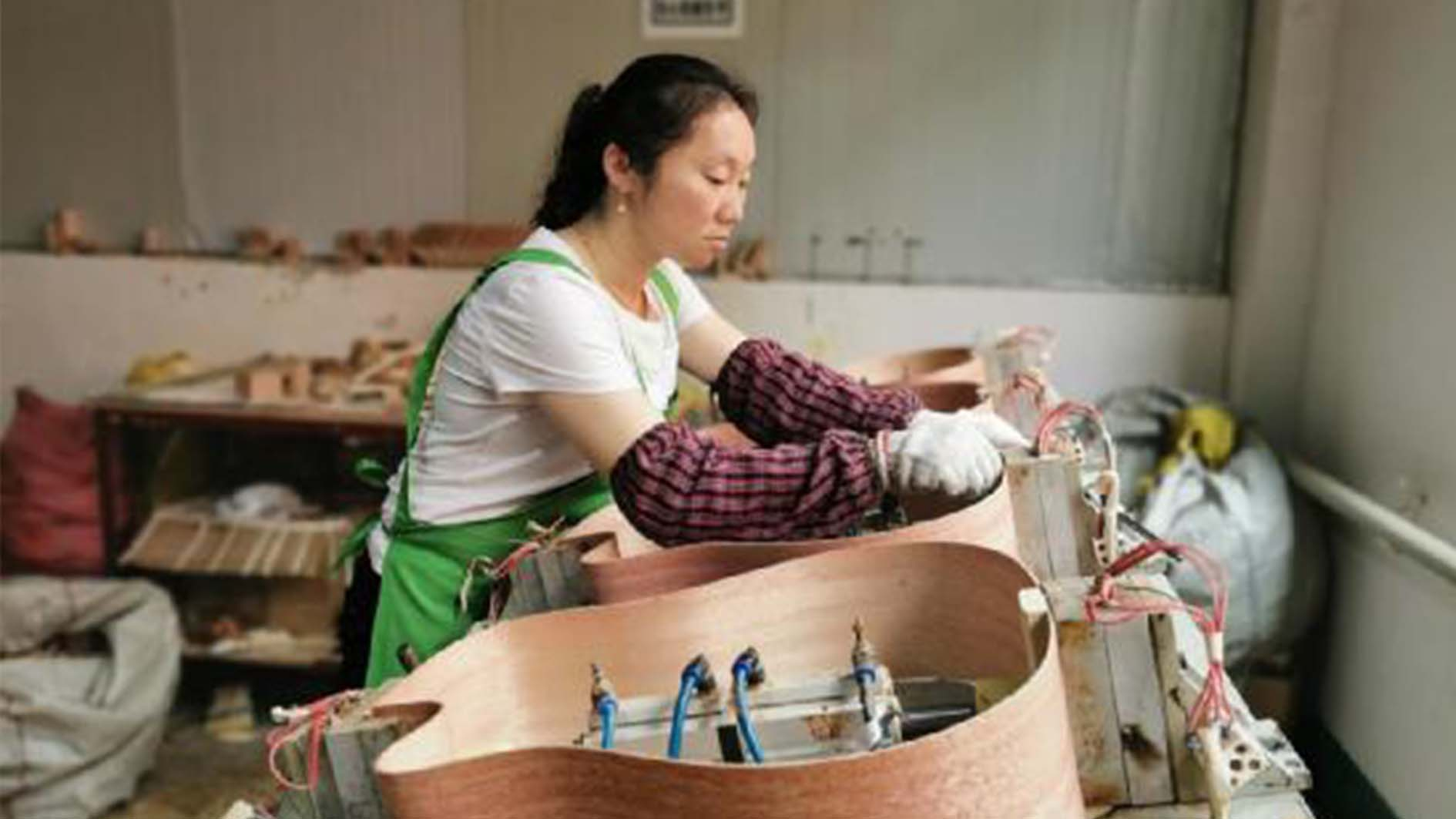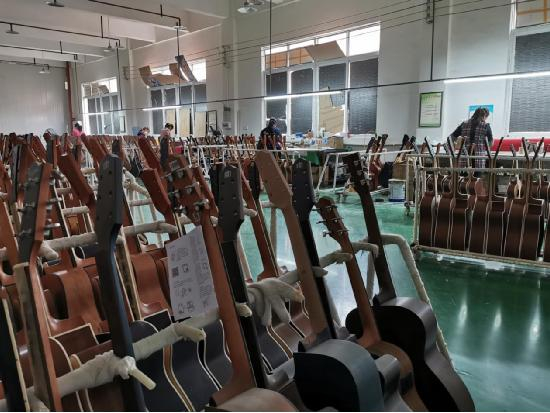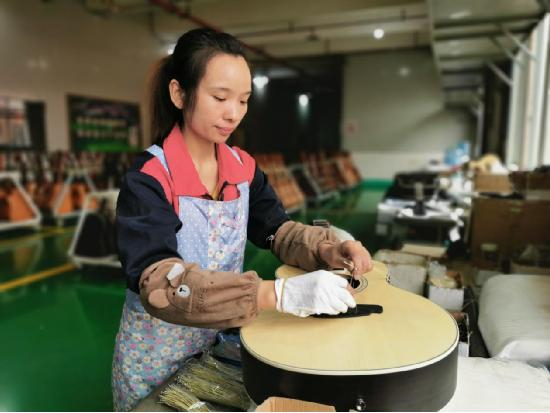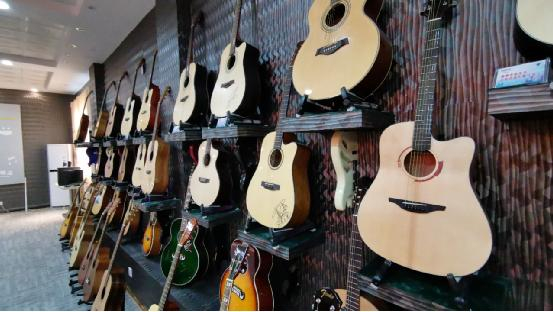
Money Stories
10:15, 23-May-2019
Chinese guitar makers move up the value chain
Updated
12:00, 23-May-2019
Wei Lynn Tang, Li Yang
03:02

From "Made in China" to "Designed in China" – this is ringing true for guitar manufacturers in Zheng'an County in southwest China's Guizhou Province.
In 2018, China produced 30 million units or three-quarters of the world's guitars. At six million pieces, Zheng'an County accounted for about a fifth of the national output.
Zheng Chuanjiu, chairman of Zunyi Shenqu Musical Instruments Manufacturing – the biggest guitar manufacturing facility in Zheng'an – has set his sights beyond producing for others.
"We are (still) mostly an original equipment manufacturing (OEM) player for top international brands for now, such as Tagima and Ibanez. But we ultimately want to build our own independent brands, and bring them to the international arena," Zheng said.

Zheng Chuanjiu (L), chairman of Zunyi Shenqu Musical Instruments Manufacturing, wants to ramp up production of his own brand of guitars. /CGTN photo
Zheng Chuanjiu (L), chairman of Zunyi Shenqu Musical Instruments Manufacturing, wants to ramp up production of his own brand of guitars. /CGTN photo
Zunyi Shenqu's own brand of guitars hit the market two years ago and currently contributes to nearly 10 percent of the company's sales. The remaining 90 percent still come from its OEM segment.
Developing one's own brand takes time, Zheng said, but he remains ambitious and hopeful.
"In the next five years, we plan to have our independent brands contribute 40 percent to even half of our production volume, while we gradually reduce that of OEM orders. We will still take on OEM orders, but targeting more the medium to higher-end market," he said.

Zunyi Shenqu produced 600,000 guitars in 2018 and raked in 310 million yuan in revenue. /CGTN Photo
Zunyi Shenqu produced 600,000 guitars in 2018 and raked in 310 million yuan in revenue. /CGTN Photo
"Profit margins for our OEM segment are lower at about 10 to 15 percent, but that of our own brand can hover around 30 to 40 percent."
This is perhaps why Zheng is rather unfazed about his 700-strong workforce and labor costs, which have been rising at about 10 percent a year.
"What's important is to (continue) increasing our quality and added value, through which we can charge a higher price to customers and cover the increase in labor costs," he quipped, adding that people's consumption trends have changed and their requirements towards material goods are now higher.

Most of the 186 required steps in the guitar-making process in Zunyi Shenqu's facility are done by hardworking hands. /CGTN Photo
Most of the 186 required steps in the guitar-making process in Zunyi Shenqu's facility are done by hardworking hands. /CGTN Photo
Not affected by U.S. tariffs
Zheng also brushed off concerns on any potential impact from a 25-percent tariff imposed on his guitar exports to the United States as the result of the ongoing trade dispute between the two countries.
Exports to the U.S. make up 20 percent of the company's total sales.
"If our U.S. clients are willing to take on a bulk of this tariff, we will accept the order. If not, we won't as we can choose to take on other orders. As long as we continue to produce quality goods, we will have a place in the market to operate."
The thriving guitar industry in Zheng'an is hugely thanks to Zheng, who moved his guitar manufacturing base from Guangzhou back to his hometown in Guizhou in 2013.
He was previously working in a guitar factory in Guangdong Province with his brother, who then slowly rose up the ranks and started their own guitar manufacturing business.

Zunyi Shenqu makes guitars for six of the top 10 global brands. /CGTN Photo
Zunyi Shenqu makes guitars for six of the top 10 global brands. /CGTN Photo
In 2018, Zunyi Shenqu's revenue tripled to 310 million yuan (about 45 million U.S. dollars) from 98 million the year before. Production volume of guitars rose to 600,000 units from 200,000 units.
Zheng continues to be optimistic about future demand, especially domestically, citing people's increasing living standards.
"In the past, it was about meeting one's basic needs like food and clothing, but now it's more about spiritual civilization. Many parents are willing to send their kids to music and dance classes, while many schools offer guitar courses," he said.
"Demand for our products exceeds our supply."

SITEMAP
Copyright © 2018 CGTN. Beijing ICP prepared NO.16065310-3
Copyright © 2018 CGTN. Beijing ICP prepared NO.16065310-3